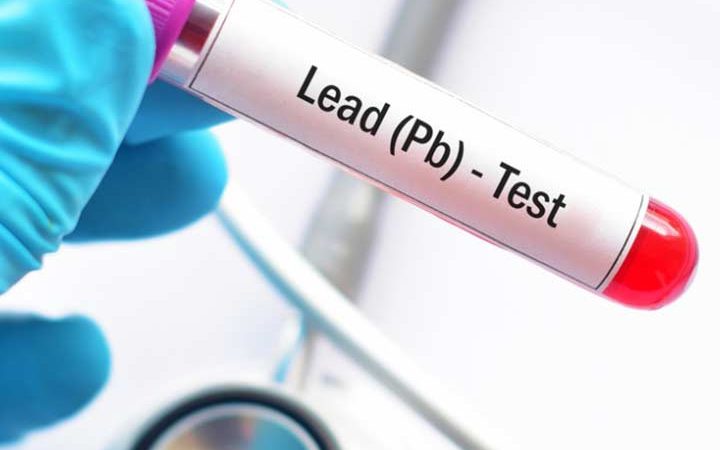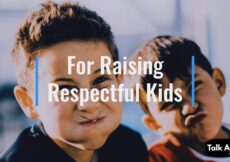Lead is a soft, heavy, and toxic metal. It is a hidden poison found in many daily-use products and some toys. Lead traces are also found in house paint, dirt, and dust. Lead poisoning is a completely preventable yet one of the most common pediatric public health problems in the US.
Read this post to learn more about the symptoms, causes, diagnosis, treatment, and prevention of lead poisoning in children.
Symptoms Of Lead Poisoning In Children
Children with a low level of lead poisoning are often asymptomatic, and each child may exhibit different symptoms of lead poisoning. While some children may appear healthy and not exhibit any side effects, others may exhibit the following symptoms.
Note: These symptoms may also be present in other conditions, such as autism. Thus, seek a pediatrician’s help for the correct diagnosis.
Causes And Risk Factors Of Lead Poisoning In Children
Children can be exposed to lead in many ways, and they might inhale or ingest it from their surroundings. The following are the possible sources of lead exposure in children.
- Lead paint in houses built before 1978
- Water from old plumbing fixtures and pipes that are soldered with lead
- Imported candies and candy wrappers
- Imported cosmetics
- Consumer products, such as tea kettles and vinyl miniblinds
- Lead in dust and soil
- Toys and furniture painted with old lead-containing paints
- Hobby equipment containing lead products (stained glass windows, ammunition, and lead sinkers used in fishing)
- Exposure to the parents’ work clothes
- Adults bringing scrap or waste material home from work
- Toy jewelry or trinkets made of cheap quality
- Traditional medicines and home remedies such as azarcon and greta from some countries
- Imported food cans with lead soldering
- Pottery and ceramic glazed by lead
- Kohl from some countries
- Lead-containing soil due to battery recycling and mining
- Lead generated from the burning of lead-containing objects
- Gasoline or aviation fuel loaded with lead.
Besides these, children who fall under the following categories may be more susceptible to lead poisoning than other children.
- Children residing in localities with lead-contaminated water lines or poor anti-corrosion control.
- Children with iron deficiency
- Children belonging to families below the poverty line
- Children younger than five years of age are at the greatest risk of developing elevated blood lead levels.
Diagnosis Of Lead Poisoning
A blood test is the only way to identify the presence and look for elevated levels of lead in the child’s blood. Lead levels are measured in micrograms per deciliter (µg/dL). The doctor might collect blood from a small prick on the fingers or via a venous sample.
There is no definitive safe blood lead level. Blood lead level higher than five µg/dL is concerning. However, recent studies have proven that even low levels of lead poisoning can impact children’s IQ, growth, development, and hearing.
Ask your pediatrician about lead if your child might be at risk for lead poisoning, especially if the child is aged between six months and three years.
According to the American Academy of Family Physicians, the following criteria should be followed to screen children for lead poisoning.
- Screening all children at 12 months
- Screening all children again at 24 months or at least once between 36 to 72 months if not screened previously
- Universal screening of all people in areas where more than 27% of the houses were built before 1950 or if 12% or more children aged 12 to 36 months have blood lead levels greater than 10 µg/dL
Effects Of Lead Poisoning In Children
According to the World Health Organization, young children are more vulnerable to lead poisoning from any given source as they may absorb four to five times more lead than an adult would.
Low-level exposure to lead can cause
- Reduced intelligence quotient (IQ)
- Reduced attention span
- Increased antisocial behavior
- Reduced educational attainment
High-level exposure to lead can affect the brain and the central nervous system and lead to
- Coma
- Convulsions
- Death
- Mental retardation
- Behavioral disorders
Lead exposure can also cause the following problems
- Anemia
- Hypertension
- Renal impairment
- Immunotoxicity
- Toxicity to the reproductive organs
Treatment For Lead Poisoning In Children
The treatment for lead poisoning begins with identifying and eliminating the source of the exposure to stop the progression of the symptoms. Medicines cannot reverse the effects, but in the case of extremely heavy lead poisoning, a process called chelation therapy, which pulls heavy metals from the circulating blood, is performed.
However, chelation therapy may have severe side effects and may also lead to death. Thus, the doctor will advise chelation only if the benefits outweigh the risks.
Prevention Of Lead Poisoning
The following steps can help you protect your child from lead poisoning.
- Lead is more readily absorbed on an empty stomach. Therefore, keeping the child’s tummy full with foods rich in iron, calcium, and vitamin C and low in fat can cause lesser absorption of lead.
- Keep the child away from peeling or chipping lead-based paint.
- Keep the areas of the house such as floors and windowsills clean to protect the child from lead-contaminated
- Practice handwash hygiene. They must wash their hands after play, before meals, and before bedtime. This is necessary for young children who put their hands in the mouth frequently.
- If your residence is surrounded by empty space and bare dirt, cover the area with grass, wood chips, or plantings to keep the dust down.
- Wash the child’s toys, books, and teethers regularly.
- If you are moving into a rented house, enquire about peeling and chipping of paint with the landlord.
- Check with the pediatrician about when you should have your child tested for lead poisoning.
- You may purchase a lead test kit from any hardware store to check if the paint chips or dust in your house contains lead.
The best way to avoid lead poisoning is to prevent it from happening. Take precautions if lead poisoning cases are reported in your neighborhood. Talk to the pediatrician or your local health department if you have any queries regarding the risks or probability of lead exposure for your children.
References:
MomJunction’s articles are written after analyzing the research works of expert authors and institutions. Our references consist of resources established by authorities in their respective fields. You can learn more about the authenticity of the information we present in our editorial policy.



































